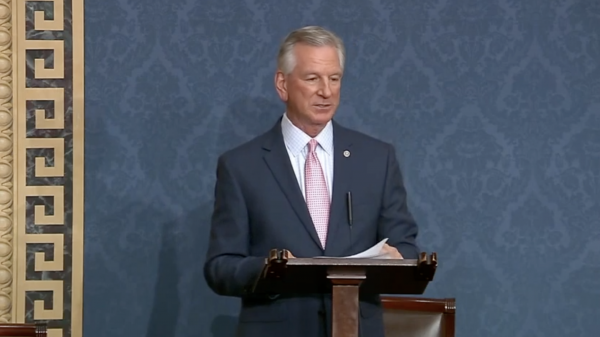By Bill Britt
Alabama Political Reporter
MONTGOMERY—“Many of our state’s family farmers are hurting right now, many are looking for a way to just pay their notes. This was a way for us to help them, help themselves,” said Representative Joe Hubbard (D-Montgomery).
Hubbard is speaking about his bill that would have allowed Alabama restaurants to receive a tax credit when buying local Alabama farm products.
Much to Hubbard surprise, Governor Robert Bentley chose to pocket veto a bill that would have helped Alabama’s family farmers.
“I put this bill together because a friend had sent me a news article about the success of similar programs in Louisiana and South Carolina,” said Hubbard.
Hubbard said after looking into the success of other state “Farm to Table” programs he thought it was a innovative way to help local farmers and local restaurants at the same time.
A South Carolina group points out that their Farm to Table programs has worked to strengthen economic livelihoods of farmers by building connections to local markets such as restaurants and even in some states school.
“I thought that makes sense, why not open up new markets for our farmers to sell produce, meats and other Farm to Table items, said Hubbard”
The bill would have given a 4 percent rebate to restaurants on taxes on items they purchased from Alabama farmers. Hubbard said he believed it would create a greater demand for locally-grown items therefore help both industries.
Buying local from Alabama farmers makes sense said Hubbard, “This would have created a whole new market for Alabama farmers.”
Hubbard said he was shocked when he received a call from the governor’s legal team on the last day bills could be signed into law by the governor saying the governor was going to pocket veto the bill.
Hubbard recalls, “I received a call on the Friday the last day the governor was to sign any bill into law and I was told by his legal staff–and Cooper Shaddix was not among them–that the governor has some concerns about the constitutionality of this legislation.”
Hubbard said the governor’s team said that they had read a case in Ohio [he thinks] where preference was given to local oil producing entities on a tax basis and that the Supreme Court had found that unconstitutional under the Commerce Clause giving an unfair advantage to local producers.
“I said to them, ‘Our farmers are not regulated the same way that oil and gas producers are regulated,’” said Hubbard. “The people this bill targets are not for the most part involved in interstate commerce, they are local farmers and local restaurants.”
“I told the governor’s people, ‘They are not selling all over the country. They are selling in farmers markets and produce stands on the corner of a county road. So as far as the Commerce Clause they are not subject to these national regulations.’”
Hubbard said he was frustrated with the lack of logic being offered by the governor’s staff saying, “A lot of us have been left scratching their heads on the governor’s motivations on many different things lately but this made no sense.”
Hubbard said he pointed out that the program has to be funded for it to take effect and that there was nothing in this year’s budget that funds the program, therefore it could not run afoul of the Commerce Clause. He said the reason to get the bill passed this year was so when the money to fund the program was available “we can hit the ground running, so we don’t have to wait for Ag and industry to get up to speed.”
Hubbard said he asked, “Who do you think would be challenging this? Do you think Georgia peach farmers are going be complaining when Alabama restaurant owners get to take a tax credit when they buy Alabama peaches?”
He said he also pointed out that the rebate was to the purchaser not to the farmer. Hubbard said that the staff would not even entertain his argument. Hubbard said, “Their response was that the decision has been made.
Hubbard was told, “The governor doesn’t feel this is constitutional and he doesn’t want to risk litigation.”
He said, “My response to them was, ‘After seeing the governor cave on immigration which is patently unconstitutional. After seeing him sign a General Fund Budget that was patiently unconstitutional and after seeing him call a special session on a redistricting plan that is patently unconstitutional and as and will result in litigation, it is curious to me that a bill as innocuous as and as productive as this, would be the first bill that the governor would take a stand against as unconstitutional.’ They did not even responded.”
Hubbard says that he is greatly disappointed that a opportunity to help Alabama’s small business community was squandered by the governor.





















































